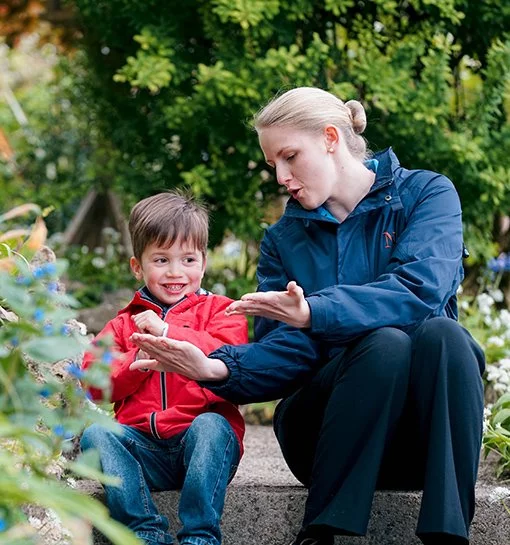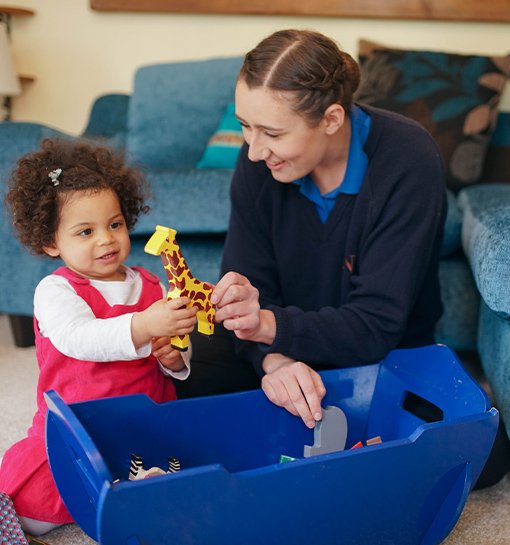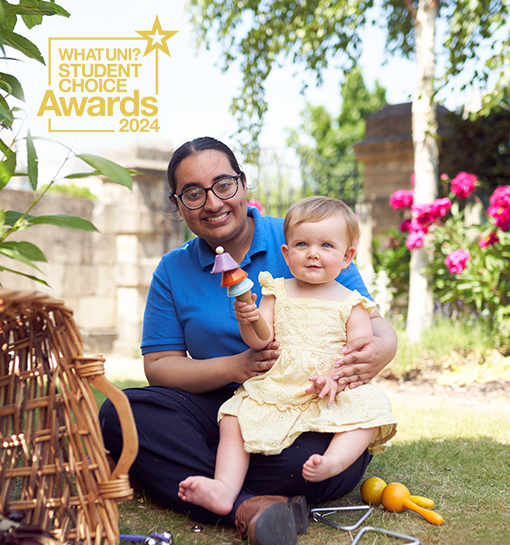Supporting and guiding children during stressful times
31 March 2020

With so much time spent indoors in close proximity to our loved ones, there will inevitably be times when the family home becomes something akin to a pressure cooker. Here Dr Janet Rose, Principal, and Julia Gaskell, Head of Consultancy and Training, have put together some helpful tips to relieve some of this pressure.
Use emotion coaching techniques to support a child’s behaviour during overwhelming or stressful times
Emotion coaching is an evidence-based approach, that helps children to learn to empathise, self-calm and self-regulate, control their impulses, motivate themselves, and better cope with life’s ups and downs – essential skills for when they’re grown-ups too!

“Emotion coaching is a way of telling a child that they are supported, cared about, understood and respected, whilst also communicating that not all behaviours are acceptable and that they need to moderate how to express their feelings and desires.”
Its usage is supported by growing evidence from neuroscientific research about how we regulate our stress and how we come to terms with the fact that we can’t always get what we want! These are vital skills for coping with particularly stressful or overwhelming times, which we are all going to be experiencing in the days and weeks ahead.
Norland students are all trained in emotion coaching, alongside other strategies such as reading books that help children to understand their feelings.
When your child gets upset, try the following:
- Take them to a calm space in the house – acknowledge how they might be feeling and empathise: “Ahh, I think you must be feeling tired and upset that you can’t have…. I’d feel a bit upset too but it’s not OK to throw toys.”
- Validate their frustration or grumpiness: “It’s normal to be grumpy when we can’t have something we really want and we’re feeling tired.”
- Be explicit about how you’re helping them and why: “I know that you want to keep playing with your toys, but it’s time for bed now and sleep is really important. It will make you feel much happier tomorrow. In the morning, we’ll play with your toys together, would that be fun? You can choose your favourite cuddly toy and story now, and we can cuddle up and read the story together before bed.”
- Once the child is calmer you can teach them rules about behaviour and strategies for coping next time they are feeling overwhelmed, tired, or lose control.
See a messy house as a happy house. Cut yourself some slack if the house isn’t perfect. After all, kindness, love and looking after each other is more important. When the clutter gets too much, ask the children to help with the laundry and cleaning – you can even make it a game.
Manage your own worries and look after yourself. It’s a very worrying time right now, and while it’s important to have honest conversations with children, it’s also important to try and keep calm and manage our own fears when talking to them to help them to feel safe. Children will be anxious and concerned because their parents and carers are. Remember you’re their safe haven. Take time to look after yourself and find moments of peace where you can.
Find out more about emotion coaching at Emotion Coaching UK
Read the Dad Blog UK interview with Dr Janet Rose on emotion coaching








